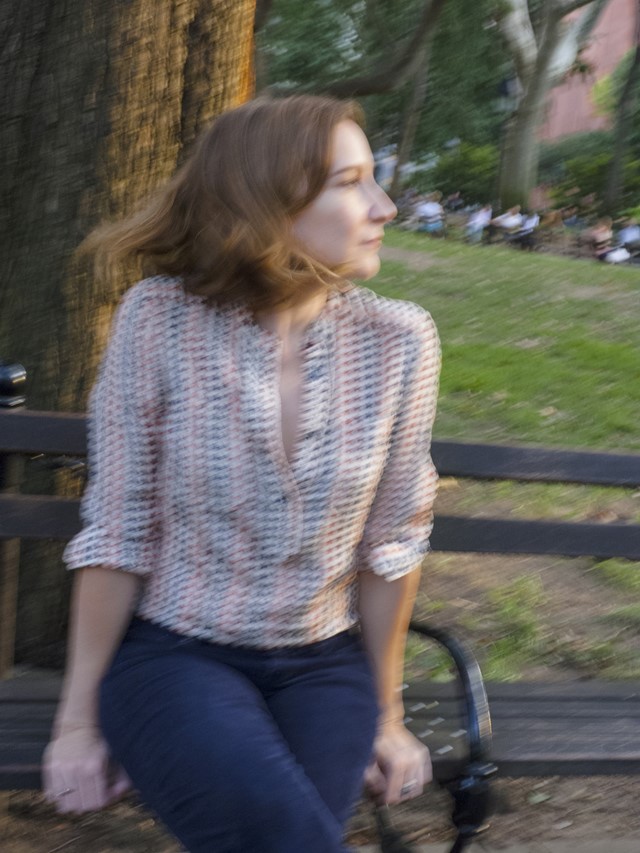The Canadian author’s hotly awaited new novel Motherhood launches today. Here we present an exclusive excerpt
Sheila Heti’s Motherhood charts the ebbs and flows of indecision in the mind of a woman approaching the latter end of ‘accepted’ childbearing age. A follow-up to her hit novel How Should a Person Be – a bildungsroman that explores a 20-something’s burgeoning questions about art, love, morality and friendship – Motherhood contends with the difference between wanting a child, and the possible social conditioning that leaves us feeling we need one.
Written in real time, to the tune of a metaphorical ticking metronome, the novel flips between monologues, conversations with a friends, and a dialogue with a divination technique inspired by the I Ching – with which Heti asks the universe for answers to unequivocal questions. In the throes of Heti’s dizzying existential angst, this latter technique lends jolts of humour, the self-acknowledged futility of answering questions with a coin-toss only highlighting the impossibility of the topic at hand. And yet, the book marries heart-wrenching neuroses and insecurities with moments of exquisite clarity and epiphanous light, couched in a feminist reading of what it means to choose one’s reproductive role – a topic that strangely feels ever more relevant. What transpires is an eloquent exploration of what it means to choose not motherhood, and the inherent difficulties of showing the world what you gain when you do so. Heti manages a feat that modern womankind will likely thank her for – of inverting the image of absence that clings to (only) a woman’s choice of living without child. In its place, she presents other gifts: her art, her freedom, and ultimately the acceptance of wholeness in her self. She presents Motherhood. As this extract so expertly illustrates...
Tonight, I was reading a story about the Baal Shem Tov – one of the holy rabbis of the nineteenth century – and in the story, the Baal Shem Tov’s daughter asks her father to tell her the name of the man she will marry, and to say whether she will ever be a mother. Her father throws a party and at the party her husband is revealed to her. The story ends by saying that she had two boys and one girl, and the names of the boys are given, and what they grew up to be, but the name of the daughter is not given, nor what she grew up to be (presumably a mother). Putting the book down, I realized that throughout most of history, it was enough for men that women existed to give birth to men and raise them. And if a woman gave birth to a girl, well then, with luck the girl would grow up to give birth to a man.
It seemed to me like all my worrying about not being a mother came down to this history – this implication that a woman is not an end in herself. She is a means to a man, who will grow up to be an end in himself, and do something in the world. While a woman is a passageway through which a man might come. I have always felt like an end in myself – doesn’t everyone? – but perhaps my doubt that being an end-in-myself is enough comes from this deep lineage of women not being seen as ends, but as passageways through which a man might come. If you refuse to be a passageway, there is something wrong. You must at least try. But I don’t want to be a passageway through which a man might come, then manifest himself in the world however he likes, without anyone doubting his right.
~
There are squirrels in the walls, or mice there. As I write, I can hear them moving, chewing the insides of the walls. I can hear them scratch on the insides of the walls, their little teeth chewing. They are eating the insulation, or wood, or cement, or whatever is in these walls.
~
If I consider raising a child in my own home and say this is what I have chosen not to do, what have I chosen, if anything? Language doesn’t fit around this experience. It is therefore not an experience we can speak of. But I want a word that is utterly independent of the task of child-rearing, with which to think about this decision—a word about what is, and not what is not. But how do you describe the absence of something? If I refuse to play soccer, is my not playing soccer an experience of playing soccer? My lack of the experience of motherhood is not an experience of motherhood. Or is it? Can I call it a motherhood, too?
What is the main activity of a woman’s life, if not motherhood? How can I express the absence of this experience, without making central the lack? Can I say what such a life is an experience of not in relation to motherhood? Can I say what it positively is? Of course, it’s different for every woman. Then can I say what it positively is for me? I cannot. Because I’m still in a place of indecision, not knowing what I want. I haven’t yet birthed the person who by actively choosing not to have children lives in a way that positively affirms non-parental values, nor can I affirm the maternal experience of life.
Motherhood by Sheila Heti is out now, published by Harvill Secker.
